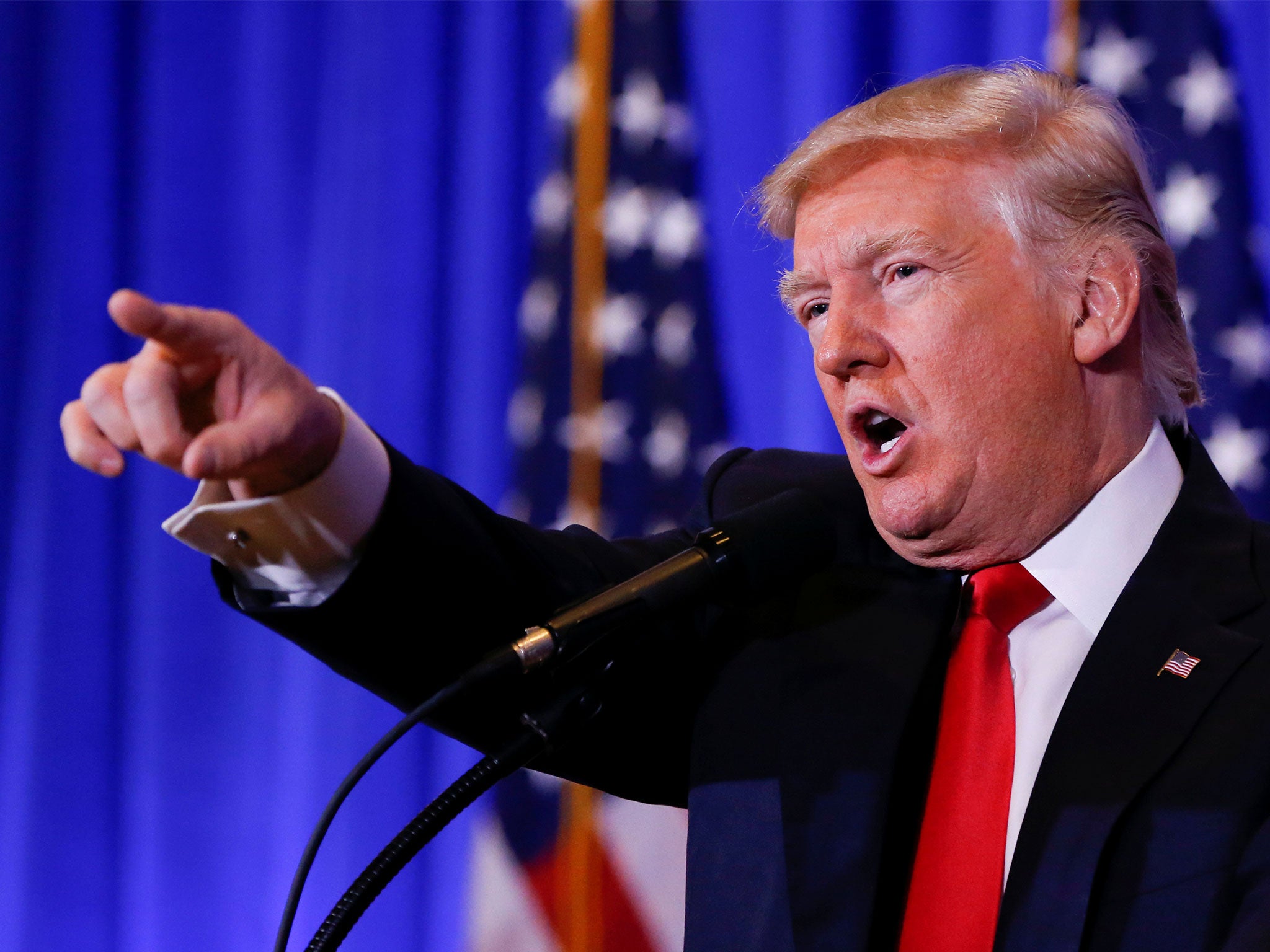Donald Trump is playing a dangerous game in alienating intelligence agencies
For Mr Trump to have lambasted the FBI and the CIA effectively for doing no more than telling him and other relevant individuals about the Steele dossier’s existence is bizarre. For him to go on to suggest, without clear evidence, that intelligence officials were responsible for leaks to the media was the height of folly

The British Government is determined to retain the UK’s “special relationship” with America under Donald Trump’s presidency – desperate, not least, to secure a beneficial, transatlantic trade deal as divorce from the EU comes ever closer. The idea that a former British spy and an ex-UK diplomat appear to have played key roles in the latest imbroglio to entangle the incoming President is not, perhaps, the kind of closeness ministers had in mind.
While the resources available to the British intelligence services pale in comparison to their American counterparts, the UK is well-known for the quality of its operatives, many of whom subsequently work in the corporate intelligence sector. It is not, therefore, wholly startling that the dossier containing allegations against Mr Trump of personal and political impropriety should have been the work of a man – widely identified as Christopher Steele – who once plied his trade with MI6. Moreover, in the case of Mr Trump’s political opponents, it may have seemed more subtle to employ somebody who works primarily for a London-based organisation – Orbis Business Intelligence – than a specialist closer to home.
The suggestion that the explosive claims were brought to the attention of Senator John McCain by a former British diplomat is arguably more intriguing – not only because of Mr McCain’s known antipathy towards Donald Trump, but also because it is a further indication of the extent to which the allegations were circulating among the UK’s intelligence and diplomatic community. Indeed, if it is the case that serving MI6 officers knew of the contents of the dossier, it is entirely plausible that senior figures within the British Government had been briefed about its existence too.
Even if that were so, it does not mean necessarily that the specific claims concerning Mr Trump’s personal peccadillos – or indeed any of the other allegations – were regarded by British intelligence as credible. But, as has become clear this week, the mere existence of the dossier was sufficient to convince the FBI and CIA to alert the outgoing and incoming presidents to its contents.
Donald Trump was swift to rubbish the claims against him, of course. He also used his extraordinary news conference on Wednesday to attack the role of the American intelligence agencies in the affair. More than that, he seems to have questioned their whole raison d’être. Yet putting aside the veracity of the specific allegations, it ought to be abundantly clear to the man who will shortly receive his security briefings in the White House that one of the key tasks of a nation’s spy chiefs is to warn their leaders about security threats – and those need not only be physical. For Mr Trump to have lambasted the FBI and the CIA for doing no more than telling him and other relevant individuals about the Steele dossier’s existence is bizarre. For him to go on to suggest, without clear evidence, that intelligence officials were responsible for leaks to the media was the height of folly.
It has been a hallmark of successive governments in this country that relations with the Secret Intelligence Service have largely been positive – and where disagreements have arisen, they have not been played out in the public arena. By taking a different tack with America’s intelligence agencies, Mr Trump is alienating the very people he needs to keep close if his presidency is not to risk unravelling. It is a dangerous game to play. After all, it is surely common knowledge that spies are not best left out in the cold.
Join our commenting forum
Join thought-provoking conversations, follow other Independent readers and see their replies
Comments
Bookmark popover
Removed from bookmarks